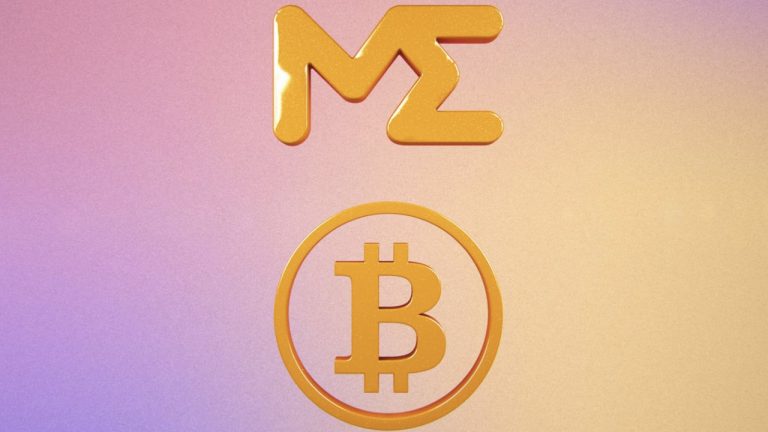
The creator of the Bored Ape Yacht Club has been struggling with a changing market and still plans to focus on its Otherside metaverse project.
Yuga Labs CEO Greg Solano had a “tough day,” he informed company employees in a message that he then shared with the world on X. Some of those employees had an even worse day after an all-hands meeting where layoffs were announced. Yuga lost its way, Solano explained.
In his message to the staff, Solano said he had been appraising the company in the two months since he took over as CEO, and his conclusion was unsettling:
“Creator royalties were thriving and made our whole ecosystem electric. Now we’re in hard mode,” Solano said, but he has a plan.

A Yearn contributor said the value lost came from “strictly protocol owned liquidity” in the protocol’s treasury and that customer funds weren’t impacted.
Decentralized finance protocol Yearn.finance is hoping arbitrage traders will return $1.4 million in funds after a multisignature scripting error, resulting in a large amount of the protocol’s treasury being drained.
“A faulty multisig script caused Yearn's entire treasury balance of 3,794,894 lp-yCRVv2 tokens to be swapped,” according to a Dec. 11 GitHub post by Yearn contributor “dudesahn.”
The error occurred while Yearn was converting its yVault LP-yCurve (lp-yCRVv2) — earned from performance fees on vault harvests — into stablecoins on decentralized exchange CowSwap.

This is the second layoff by the pioneering NFT marketplace after the crypto winter and a stubborn bear market for collectibles.
Nonfungible token (NFT) marketplace OpenSea announced on Nov. 3 that it was laying off employees. Co-founder and CEO Devin Finzer broke the news on X (formerly Twitter), saying the company was launching OpenSea 2.0 with a smaller team.
OpenSea launched in 2017, when NFTs were an innovation. It operates on a model comparable to eBay and Etsy and accepts payment in Ether (ETH). It laid off 20% of its employees in July 2022, citing the crypto winter, after which it had a staff of 230, according to press reports at the time. A spokesperson at the pioneering marketplace told Cointelegraph by email:
“Today, we are making significant organizational and operating changes as we focus on building a more nimble – and ultimately better – version of OpenSea. We are immensely grateful for the contributions of those who are leaving OpenSea, and we are supporting them with a robust package consisting of both financial and non-financial support.”
The spokesperson added that around 50% of employees would be affected across all functions and particularly mentioned that the number of middle managers would be reduced. The employees would receive four-month severance packages, accelerated equity vesting and six months of continued healthcare and mental health care.
Related: Donald Trump NFT prices spike following release of mugshot in Georgia criminal case
The market for collectible NFTs peaked in 2021. Since then, use cases such as tokenizing assets, identity and legal documents have gained popularity as the value of many collectibles declined.
OpenSea was in the right place at the right time with the right product. But so was Tower Records. What can OpenSea do to maintain this lead they have? The answer is simple. Become a DAO, drop a governance token to users. It will be valued in the tens of billions. Everybody wins.
— Beanie (@beaniemaxi) November 11, 2021
OpenSea faced significant community pushback in August when it announced that it was retiring its operator filter, a feature that allowed creators to blacklist marketplaces that did not enforce royalties. Yuga Labs, creator of the popular Bored Ape Yacht Club and CryptoPunks NFT series, began to taper off its use of OpenSea’s Seaport marketplace smart contract in response.
“As we rebuild, we'll continue supporting our existing products, and will be iteratively testing OpenSea 2.0 in public,” Finzer said in his X post. The company currently lists 12 open positions on LinkedIn with starting salaries ranging from $90,000 to $270,000.
 Four stablecoins have reduced their supplies this month, while the stablecoin token TrueUSD (TUSD) has seen its supply jump 110% higher over the last 30 days. TUSD resides natively on four different blockchains. The number of Ethereum-based TUSD rose 27%, while the number of Tron-based TUSD stablecoins increased by 218%. TUSD Supply Swells, Tron-Issued Stablecoins […]
Four stablecoins have reduced their supplies this month, while the stablecoin token TrueUSD (TUSD) has seen its supply jump 110% higher over the last 30 days. TUSD resides natively on four different blockchains. The number of Ethereum-based TUSD rose 27%, while the number of Tron-based TUSD stablecoins increased by 218%. TUSD Supply Swells, Tron-Issued Stablecoins […]
The passed measure ends the 1% USDC to DAI minting fee that was previously implemented.
MakerDAO, the decentralized autonomous organization (DAO) that governs the DAI stablecoin, has voted overwhelmingly to keep USD Coin (USDC) as the primary collateral for DAI. An alternative proposal to “diversify” collateral into Gemini U.S. Dollar (GUSD) and U.S. Dollar Paxos (USDP) has been rejected in a 20% to 79% vote, according to the proposal’s official page.

In the proposal posted on March 17, the MakerDAO Risk Core Unit suggested that the risk of a cascading bank run in the U.S. has been reduced, thanks to responses from the U.S. federal government. As a result, the risk of using USDC as collateral “has declined significantly since last week and further solvency concerns or depegs are not expected at this time.”
However, it also argued that some risks remain. USDC has “potentially more risky exposure to uninsured bank deposits” and “a weaker legal structure” when compared to its competitors, GUSD and USDP, the proposal stated.
Related: Powell says Fed stumped over the collapse of SVB
The Risk Core Unit offered two options to “normalize” the rules for minting DAI now that the crisis has passed. The first option was to spread minting capacity limits across USDC, GUSD, and USDP. If this option were chosen, the fee for converting USDC to DAI would be reduced from 1% to 0.05% immediately, but would not be reduced all the way to zero until some later date.
The Risk Core Unit stated that this first option would “more evenly distribute Maker PSM stablecoin reserves across several assets,” reducing risks from a USDC depeg.
The second option was to increase USDC to DAI minting capacity from its current 250 million to 450 million and reduce the fee to 0%. In this case, the rules for minting DAI would be brought “more closely to their previous state,” which would make DAI “continue to have outsize exposure to USDC,” it said.
Related: Powell says Fed stumped over the collapse of SVB
MKR holders overwhelmingly approved the second option, with 79.02% voting for it versus 20.69% for the first option. Less than 1% (0.29%) voted to reject both options and 0.15 MKR votes (around 0%) were used to abstain.
After a wave of bank failures, the USDC stablecoin lost its $1 peg on March 11, briefly falling below $0.90 per coin. In response, MakerDAO implemented extraordinary measures intended to prevent arbitrageurs from dumping their coins onto the protocol and causing DAI to become undercollateralized. The fee to mint DAI using USDC as collateral was raised from 0% to 1%, and the daily minting limit for this process was reduced from 950 million DAI to 250 million DAI.
But on March 13, USDC regained its $1 peg, rising as high as $0.9987. However, the extraordinary measures were still in place as of March 23, prior to the passage of this proposal.
 On Monday, the non-fungible token (NFT) marketplace Magic Eden announced the launch of Bitcoin Ordinal inscription support. Magic Eden said it has partnered with the wallets Hiro and Xverse to “bring a familiar wallet transaction experience to the marketplace.” Magic Eden’s Decision to Launch on Bitcoin Without Royalty Support and Compete With Emerging Markets Magic […]
On Monday, the non-fungible token (NFT) marketplace Magic Eden announced the launch of Bitcoin Ordinal inscription support. Magic Eden said it has partnered with the wallets Hiro and Xverse to “bring a familiar wallet transaction experience to the marketplace.” Magic Eden’s Decision to Launch on Bitcoin Without Royalty Support and Compete With Emerging Markets Magic […]
The stablecoin issuer says that from March 13 and March 15, it redeemed $3.8 billion USDC and minted $0.8 billion USDC.
Stablecoin issuer Circle says it has cleared “substantially all” of the redemption and minting requests for its stablecoin, USD Coin (USDC).
In a March 15 operational update, Circle said between the morning of March 13 to the close of banking business in the United States on March 15, it had redeemed $3.8 billion USDC and minted $0.8 billion USDC.
Update: As of close of U.S. banking operations Wednesday, March 15, we have cleared substantially all of the backlog of minting and redemption requests for USDC. Get the details: https://t.co/5WEAgPps0E
— Circle (@circle) March 16, 2023
Last week, Circle was hit with a bank run after disclosing it had $3.3 billion worth of stablecoin reserves in the now-collapsed Silicon Valley Bank which resulted in USDC losing its dollar peg.
“The events of the past week have impacted the liquidity operations for USDC,” Circle wrote in its update. It added it worked to “re-initiate services with alternative banking partners, particularly payment and USDC redemption services.”
Circle said it went live with a new banking partner for U.S. wires on March 14 and used the same partner “for international wires to and from 19 countries” on March 15. It expects “to bring more capabilities” online by March 16.
Related: Recent contagion was ‘TradFi to crypto’ and not vice versa — Circle policy director
Cross River Bank, which also services Circle's peer firm Coinbase, was disclosed as the firm's new commercial banking partner for producing and redeeming USDC on March 13. Circle also expanded ties with its existing custodian, the Bank of New York Mellon (BNY Mellon).
The announcement comes after a turbulent period for USDC that caused many to lose funds amid a flight to perceived safety from what was, at the time, a rapidly declining asset.
One unfortunate crypto user paid over $2 million to receive $0.05 of USDT in their apparent panic to cash out of the crash. An analysis revealed they possibly forgot to set slippage on their transaction, allowing a bot to net a significant profit.
Update (March 16, 3:30 AM UTC): This article has been updated to include further information on recent USDC-related events.
 The stablecoin USDC has nearly regained parity with the U.S. dollar after rising just above $0.99 on March 12, 2023, at 7:20 p.m. Eastern Time. The stablecoin jumped back to the $0.99 range after the U.S. Federal Reserve revealed it would bail out depositors of California’s Silicon Valley Bank (SVB) and New York’s Signature Bank. […]
The stablecoin USDC has nearly regained parity with the U.S. dollar after rising just above $0.99 on March 12, 2023, at 7:20 p.m. Eastern Time. The stablecoin jumped back to the $0.99 range after the U.S. Federal Reserve revealed it would bail out depositors of California’s Silicon Valley Bank (SVB) and New York’s Signature Bank. […] On Monday, Feb. 27, 2023, the number of Ordinal inscriptions on the Bitcoin blockchain crossed 200,000 at 1:02 p.m. Eastern Time. In addition to the 200,000 inscriptions, Yuga Labs, creators of the Bored Ape Yacht Club (BAYC) non-fungible tokens (NFTs), revealed that the team had created a collection of 300 generative ordinal NFTs called Twelvefold. […]
On Monday, Feb. 27, 2023, the number of Ordinal inscriptions on the Bitcoin blockchain crossed 200,000 at 1:02 p.m. Eastern Time. In addition to the 200,000 inscriptions, Yuga Labs, creators of the Bored Ape Yacht Club (BAYC) non-fungible tokens (NFTs), revealed that the team had created a collection of 300 generative ordinal NFTs called Twelvefold. […] Six days ago, a few hours before the blockchain infrastructure platform Paxos announced it would no longer mint BUSD stablecoins, $2.86 billion worth of BUSD were redeemed. Currently, Binance is the most active exchange trading BUSD tokens, and the stablecoin still commands roughly 10.7% of the crypto economy’s $67.71 billion in global trade volume over […]
Six days ago, a few hours before the blockchain infrastructure platform Paxos announced it would no longer mint BUSD stablecoins, $2.86 billion worth of BUSD were redeemed. Currently, Binance is the most active exchange trading BUSD tokens, and the stablecoin still commands roughly 10.7% of the crypto economy’s $67.71 billion in global trade volume over […]